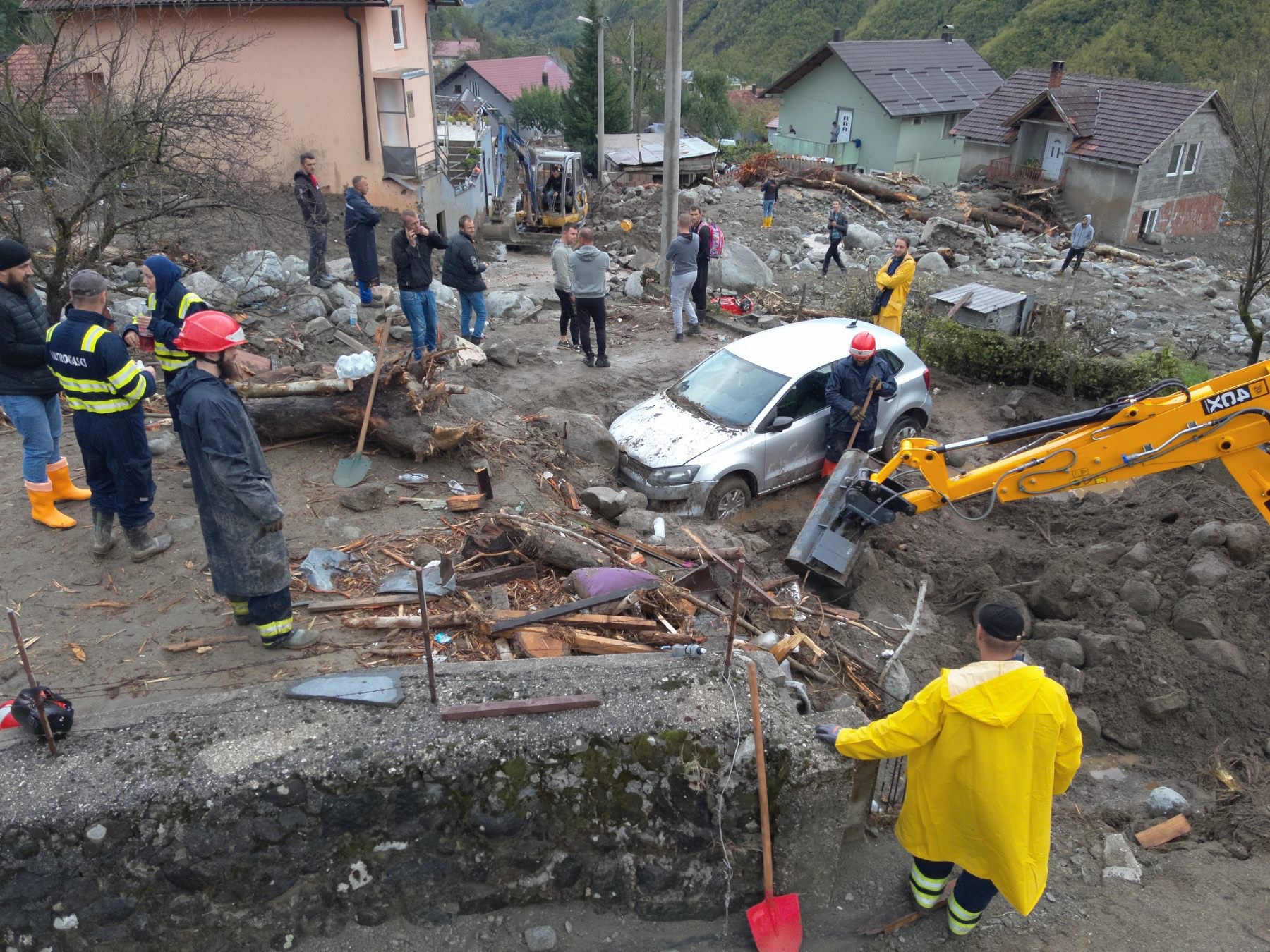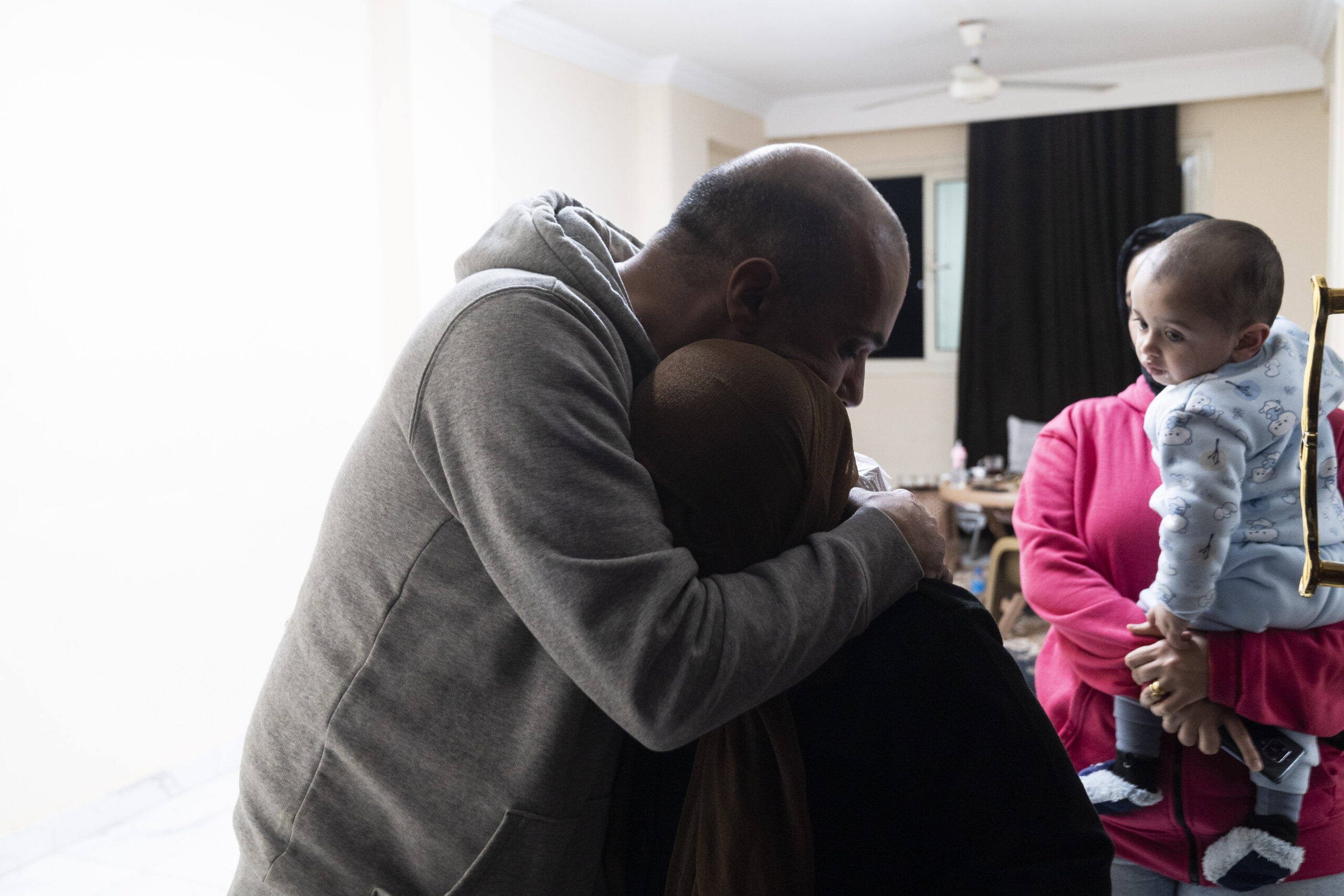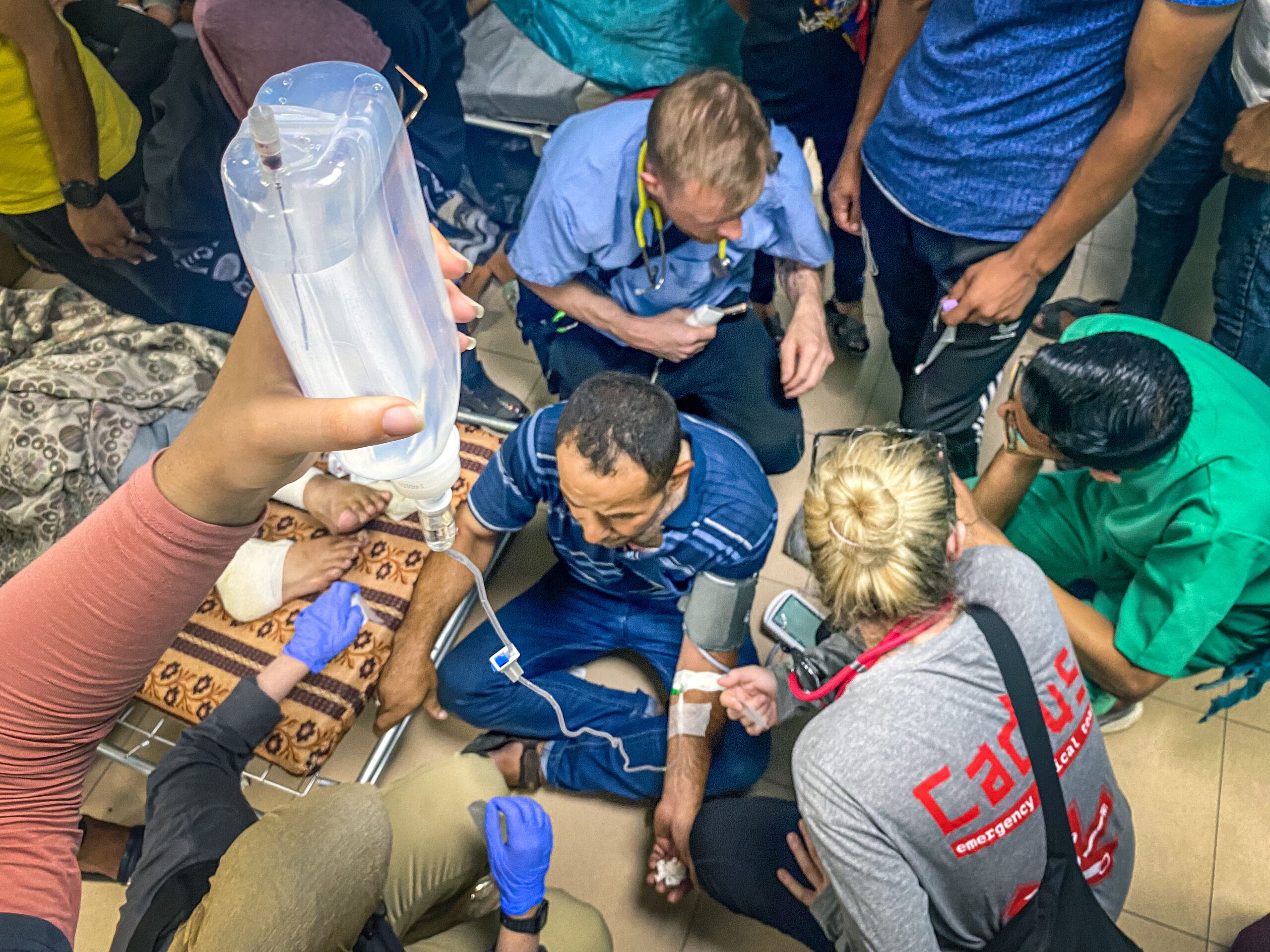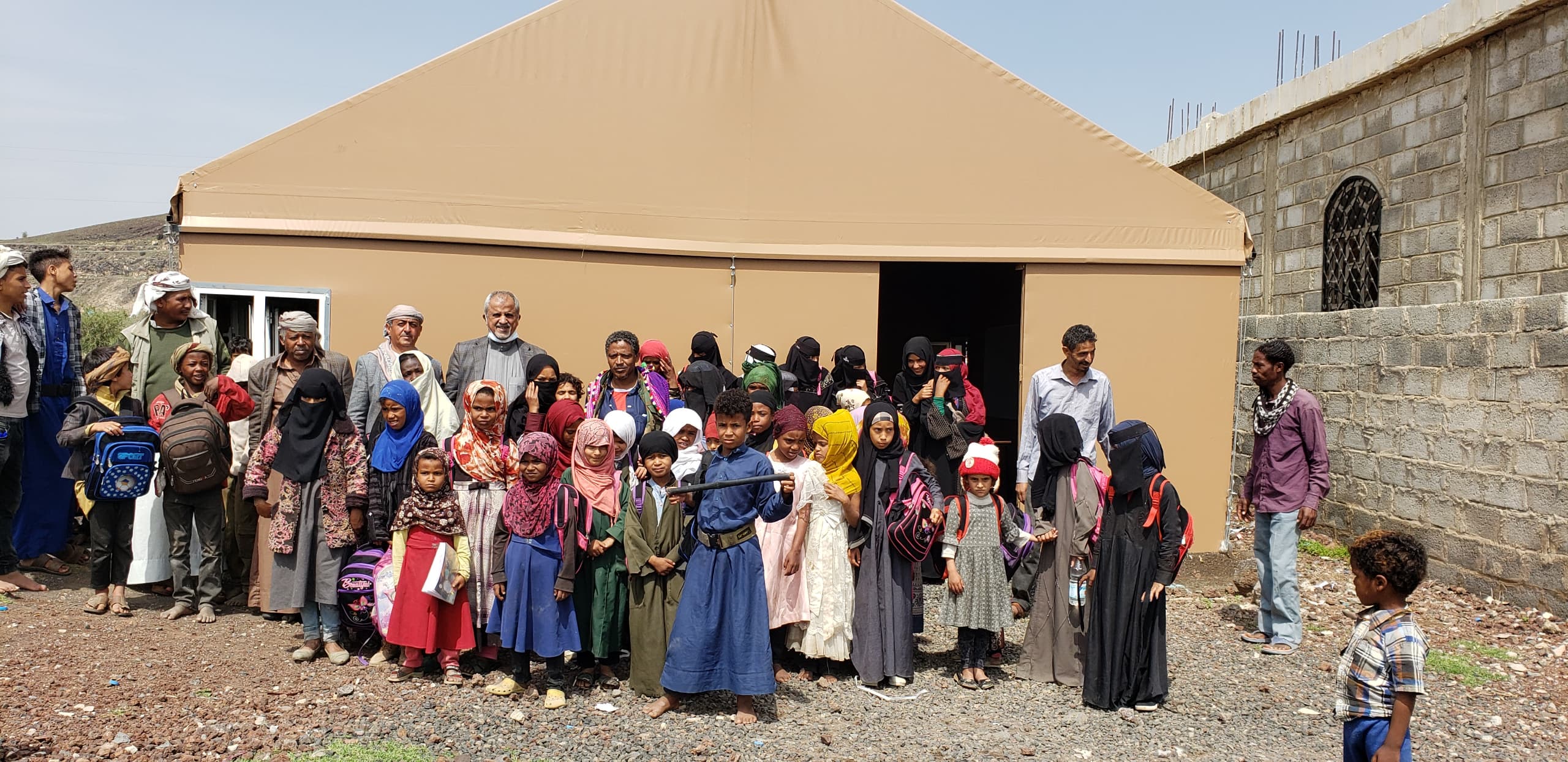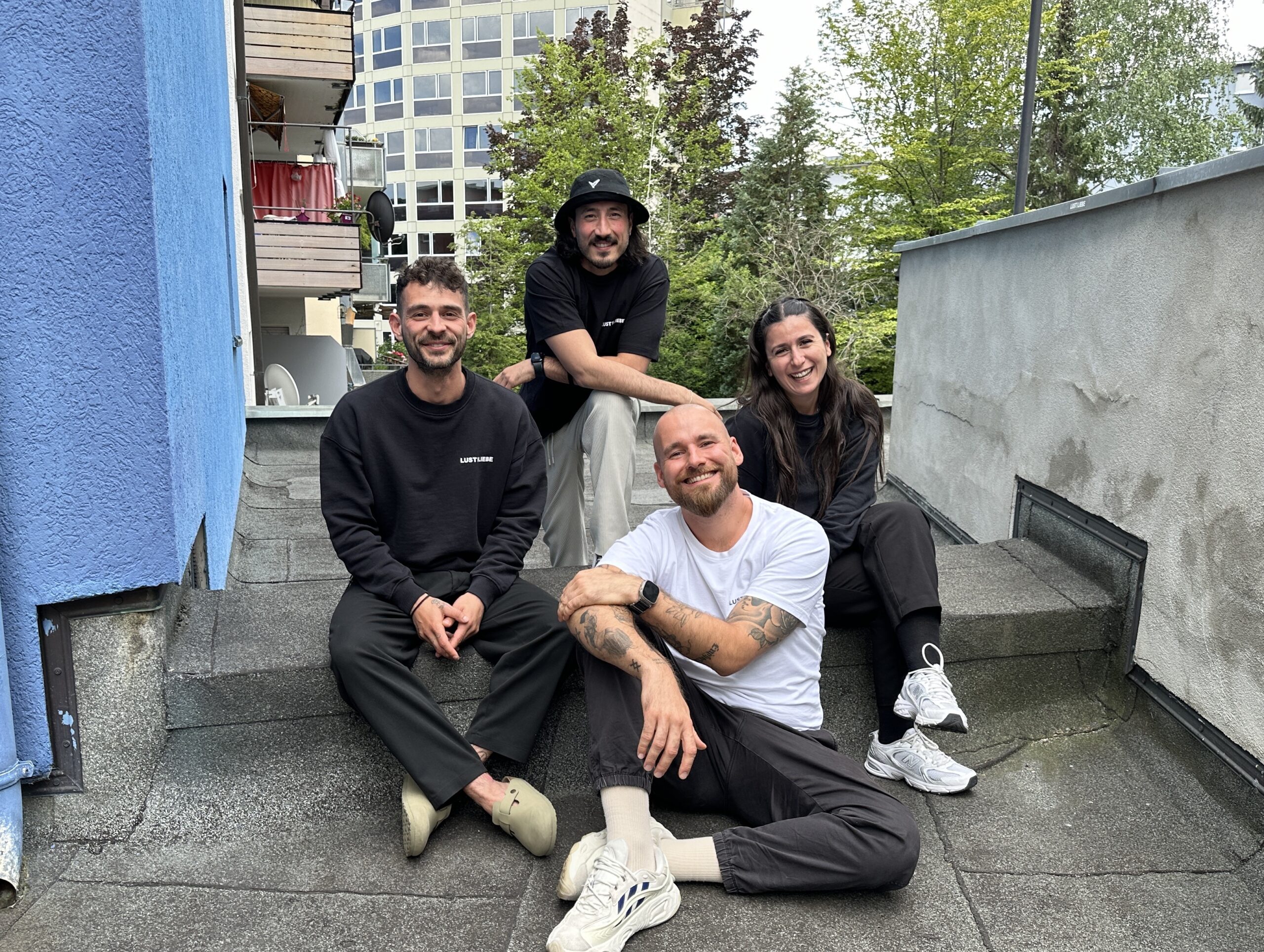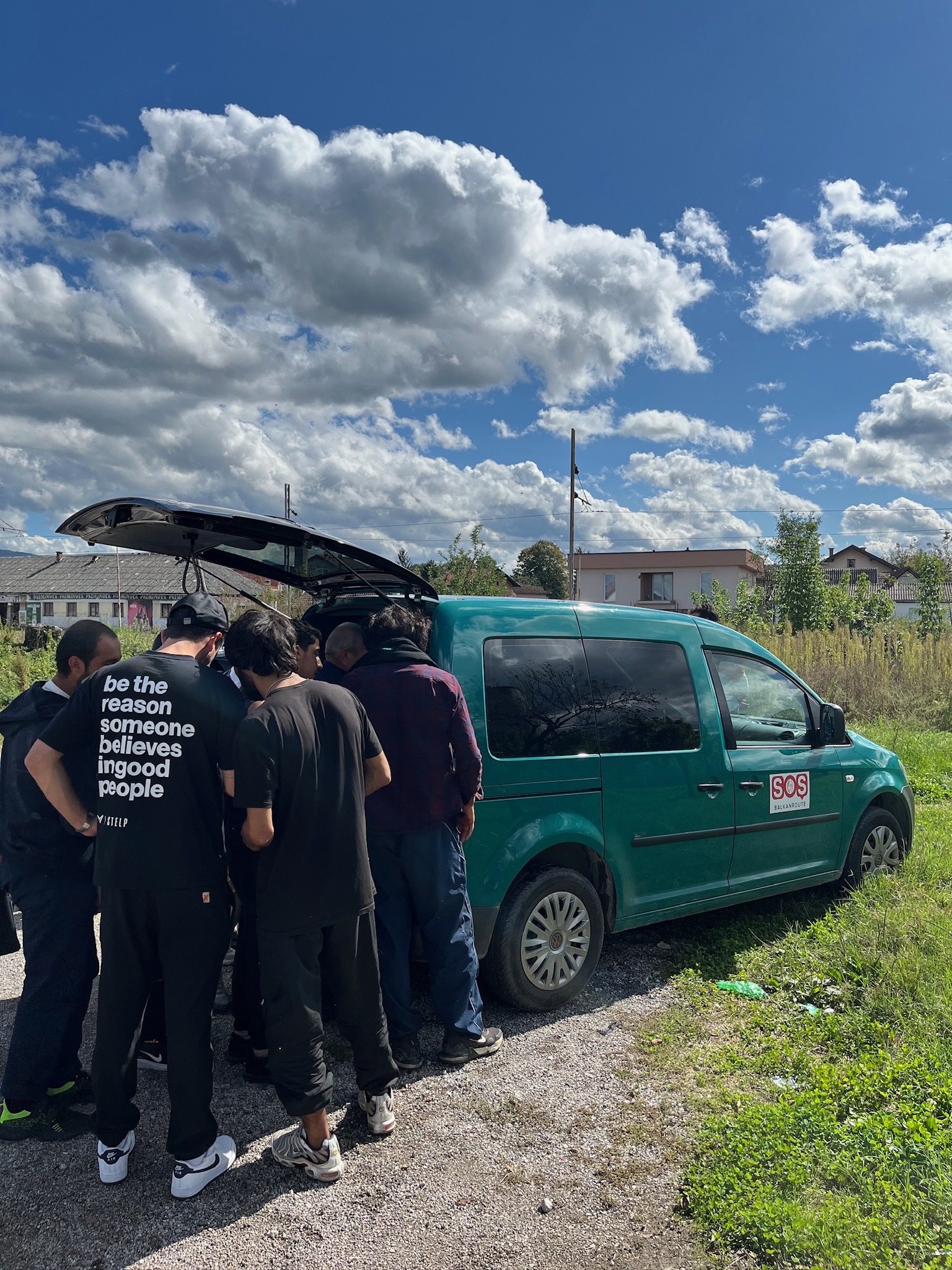Dead end Bosnia
by Christina Lopinski
It’s mid-December, Corona numbers are on the rise, and the whole Republic, it seems, is busy trying to save Christmas as if it were a vaccine. The proportionality of some stubborn traditionalists may be debated, but the big picture must not be forgotten. The pandemic has plunged Western democracies into a state of crisis to which they are no longer accustomed. It touches on security and freedom and triggers deep emotions. The Covid pandemix is an extreme situation. As an acute crisis, it overshadows what else is happening as a chronic catastrophe. We look at R-values and incidences, not refugee camps and European external borders. The Covid crisis does not make the situation of refugees in Europe less important – on the contrary.
Jannik Jaschinski, 22, student, currently lives in the Bosnian border town of Bihac, first worked as a volunteer for the Stuttgart aid organization STELP for the association ‘SOS Bihac’, meanwhile for the ‘No Name Kitchen’ and reports on the situation. “There is not only Moria,” he says. And before Jannik begins to tell the story, he paints a picture of a country that is already on the brink of overwhelm without refugees.
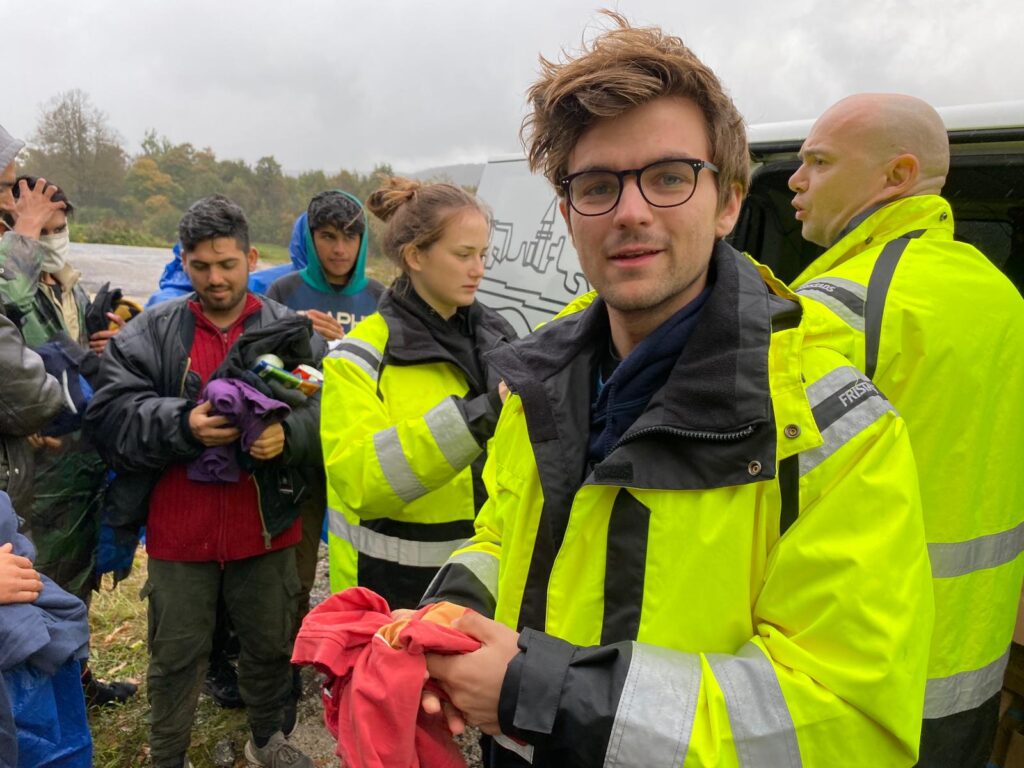 Jannick Jaschinksi and STELP partner SOS Bihac distributing clothes
Jannick Jaschinksi and STELP partner SOS Bihac distributing clothes
Bosnia and Herzegovina is a young republic. In 1992, the country proclaimed its independence from the Yugoslav confederation – and shortly thereafter plunged into a devastating war, the effects of which can still be felt today. Although Bosnia is considered a democracy, various ethno-political camps compete for power. The country is deeply divided and the political system dysfunctional and corrupt. Economic performance is weak, unemployment is high, almost as high as emigration of young people. “The country is extremely politically fractured,” Jannik says. “Many wish Yugoslavia back, there is a complete statelessness.” From his stories, it is clear that Bosnia has enough to do without the refugees. No wonder the crisis barrel is overflowing.
Why Bosnia?
Jannik is in his ninth semester of studying law and economics at the University of Heidelberg. Before his studies, he had already worked for six months in refugee aid, and during his studies he cared for an Iraqi family, and then Corona came along. His plans abroad fell through and Jannik found himself in the vortex of “doing nothing on lockdown.” He quickly said goodbye to the romance of the couch. “I felt extremely bad just sitting around while other people were doing so much worse.” He thinks of Greece – the Moria refugee camp on the island of Lesbos burned down a few months ago – he contacts STELP, talks to founder and chairman Serkan Eren: “Bosnia is rougher. If you want the biggest possible impact, you have to go to Bihac,” he tells him. The greatest need does not always shine the worst in the media. In September, Jannik decides to travel to Bihac as a volunteer for STELP and to support the aid organization ‘SOS Bihac’ on site.
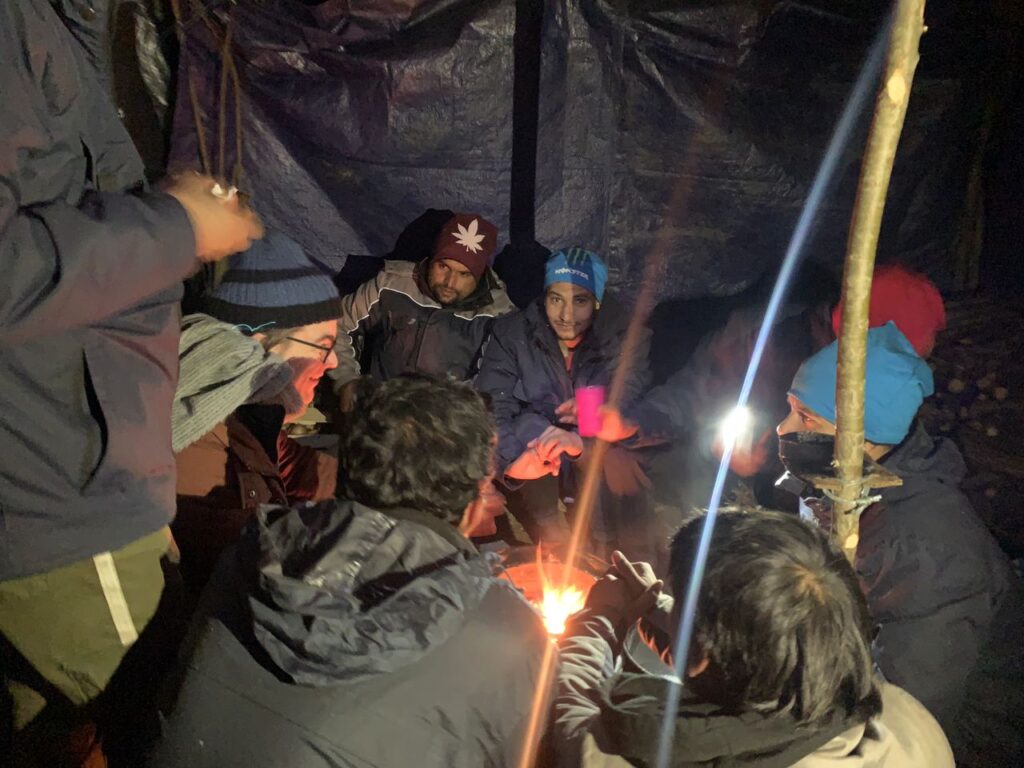
The situation in Bosnia is different from that in Greece. Bosnia is not part of the European Union. Bosnian law is opaque when it comes to humanitarian aid. Official aid organizations are allowed to work, other aid organizations are not, and the gray area is large. This makes the work difficult for NGOs and unofficial aid workers. ‘SOS Bihac’ does not operate within the framework of the official camps – there are three; outsiders do not have access to these camps. The aid organization takes care of the people living outside the camps, on the streets and especially in the border forests. “It’s hard to say exactly how many people there are, we currently assume around 1,000,” says Jannik. “We provide people with food, water and clothing, hygiene items and whatever else they need.” He sounds quite detached – after a few weeks of work in emergency relief, you probably have to be, the danger of suffocating from the endless suffering is too great.
Underground emergency aid
The work is not easy emotionally and often the volunteers also come up against structural limits. It is difficult to contact the refugees because they hide from the police. Jannik says that the refugees are usually in groups and that one of them often has a cell phone. “We communicate through Facebook and then set up a meeting place where we can hand over clothes and food.”
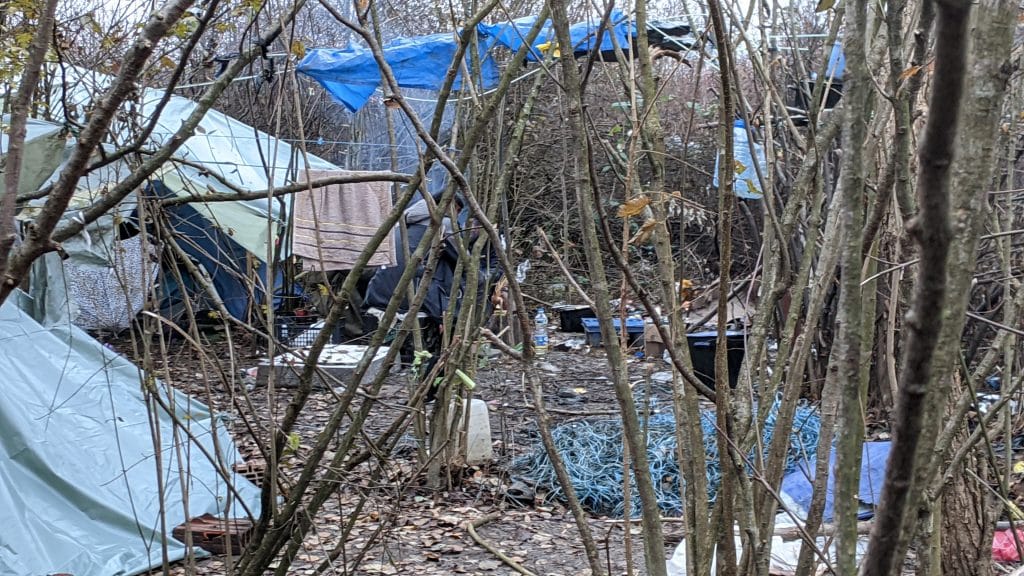
Being for the people means working against the government and police in Bosnia. Emergency aid can be breaking the law, while corruption and violence live openly. “Aren’t you afraid of the police?”, I ask. “Well,” Jannik hesitates. “The police repression is already extreme, we are very careful. When we get stopped, we pretend to be tourists.” So far, he says, it’s worked – more out of random luck, but he doesn’t say that. He’s getting along just fine. Jannik and his team live by different laws. They bring back to people the dignity that many have lost on their arduous journey to Bosnia.
Police violence and hopelessness
Bosnia is considered a transit country for refugees. Almost all want to enter the EU. Since the European border closures in 2015, many people who wanted to enter Europe via the Balkan route have been stranded in Bosnia. The only way into the EU is via Croatia. Bihac is less than 100 kilometers from the border. 18 hours walk, says Google Maps. Bosnia gets very cold in the winter. There is often high snow, especially in the forests. The ruins of buildings in the forest are regularly raided – this is how the police ensure the chronic displacement of refugees. In Bosnia, hopelessness is high, “for many it feels like a dead end,” Jannik says, sighing.
“Have you heard about the push backs?” I nod and before I can respond, he starts talking. He says that there is no big fence on the Croatian border, and that it is easy to cross from the Bosnian forest into the Croatian forest. People think they are in the EU and safe – until Croatian police pick them up. “Horror,” says Jannik. “Croatian police load people into a van and drive them to the Bosnian border. Without asylum procedures.” This is against European law. Refugees must be registered in the country where they arrive. “Most of the time, the cops take detours and turns so people throw up on each other’s feet,” Jannik says, his voice quivering. “And before they get back to Bosnia. Then a big fire is made and people are forced to throw all their stuff in. People get beaten up, I’ve heard of sexual abuse too.” Jannik gulps. “And then it’s just run, run, run back to Bosnia.” This is so horrible, I can barely process what I’m hearing. Jannik’s descriptions fall into the space of the unimaginable. “It happens every day,” he says. In the forests of Bosnia at this moment, women and men walk across the cold ground without shoes, children without winter jackets, people without hope. Jannik talks about people he’s met who have tried 30 times. Croatia – police – van – fire – beatings – Bosnia. It’s always the same, the expressions vary. “Recently we picked up a group at night, they all had swollen eyes and swollen ribs and bleeding noses.” One man was too weak to hold his water bottle, he said. “We can’t do anything then except dab wounds and hand out painkillers.” “How can you stand it?”, I ask. “I usually don’t realize how gross it is until I talk about it,” Jannik says.
Emergency help is not enough
Talking about it. Look. Disagree. Jannik is doing what we all should be doing in our own way: standing up for those who can’t stand up for themselves. Refugees in Bosnia are oppressed, humiliated, and mistreated. In an impasse full of hopelessness and frustration. “You don’t make any progress at all,” he says. “If I came back in a few months, we’d be at exactly the same point.” Jannik speaks out what no one wants to hear: that emergency aid is not enough and a political solution is needed. The EU is facing the ruins of its foreclosure policy. The ones who suffer the most are the ones who have it the worst anyway.
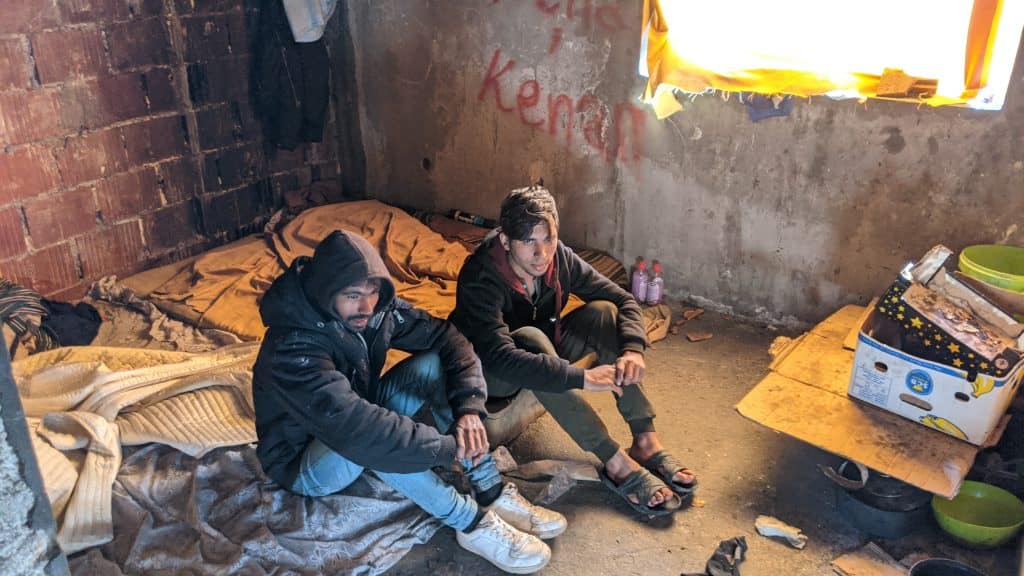
Jannik’s time in Bosnia is coming to an end. At Christmas, he wants to be back with his family in Germany. Before that, a friend comes to visit him. On their own, they plan to drive around the country in a motor home, distributing food. I’m impressed by his dedication and determination to make the world a better place and ask him what drives him. Jannik laughs. “I’m very, very, very interested in sociopolitics.” Interest and commitment seem to blur at a certain level. At least for people like Jannik. When I ask him what else he likes to do, he talks about university initiatives and politics. “And reading,” he says. And as Jannik talks about his favorite book, it sounds like he’s enjoying the opportunity to escape reality for a time. It’s called “A Little Life,” by the way.

